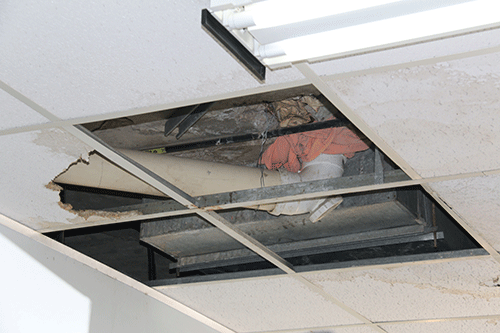Medical professionals employed by the health ministry continue to point out pressing challenges they experience daily in the Windhoek Central Hospital, among them the lack of medicine that leads to treatment delays, equipment shortages, including linen and beds, and surgery tools.
The doctors made these observations during a visit by the Parliamentary standing committee on gender equality, social development and family affairs recently to the hospital, where most of the concerns raised culminated from the lengthy procurement process, and to some extent poor planning from the health ministry itself.
“Our main challenge is the medication. Most of the time, we are not giving children the medication, and that delays treatment. Quite a few tend to relapse because of that,” said Dr. Vimanuka Kavari, a medical officer in the paediatric/oncology ward.
She said cancer recurrence is rife, or the disease will not respond to treatment due to treatment inconsistency caused by the break in the supply of medication. This, she said, is a big challenge.
“We work closely with the pharmacists from the oncology department. They usually say it is more the procurement (process) because now we tend to borrow medicine from private pharmacies,” Kavari continued.
Despite various mishaps, some wards are functioning well.
Nurse Josophine Nakafingo said the shortage of equipment continues to be an issue, especially in the rehabilitation ward.
“The storage of equipment to give optimum care, and medication is also an issue. We are running out of linen and beds,” she added.
According to Dr. Fared Zam, they had a meeting last week, and proposed that the government modifies the procurement procedures to ameliorate the needs the ministry is currently facing.
“As the Ministry of Health, we differ from other ministries. We have surgeons who cannot operate because they do not have materials. The money could be there, but the system of procurement is difficult,” said Zam.
Medical officer Dr Senorita Polster concurred with her colleagues, stating that doctors are on the ground and their hands are itching to work, but the supply chain is hampering performance.
“The whole procurement process is not aligning well with the mandate of the ministry. We have an interrupted supply chain, and it does not meet the daily demands of operation in the theatres,” she stressed.
Polster said: “Sometimes, you will feel defeated because you sit with a patient, and you know you can do the surgery, but you have to now rely on the Procurement Act to get the necessary goods”.
There was a further worry.
“I don’t know who is making the final decision to cut the budget. But it is out of our hands; that is the challenge,” said the hospital’s acting control administrator, Michael Theophilus.
“We have a list of things we need. But due to the insufficient funds that are allocated to the cardiac unit, we cannot proceed”, he added.
Cardiologist Dr Alfred Mureko pointed out that these setbacks have ripple-effects and because of this, the surgical waiting list keeps growing.
“It is a crisis. Cardiac surgery is the most expensive. If you do research, most African countries who have opened these units have failed. But as it stands, South Africa, Namibia and Egypt are doing pretty well,” he stated.
Mureko further said with the current procurement problems, things are not looking great.
Health ministry’s take
Executive director of the health ministry Ben Nangombe told New Era in an earlier response on the same topic in mid-September that approximately N$1.8 billion would be required to procure enough pharmaceutical and clinical supplies to cover a period of 12 months.
“Emergency procurement is what the ministry has been using to procure pharmaceuticals as a stop-gap measure. However, it is costly, anti-competitive, and prone to late deliveries and cancellations,” he noted.
Namibia has been experiencing shortages of medicine, including anti-epilepsy medication, anti-hypertensive medication, antibiotics, clinical supplies sundries and medical consumables used in hospital wards, operating theatres, Intensive Care Units, and emergency rooms such as hospitals’ casualty departments.
“ARV medications are not affected by these challenges, as there is a long-term contract in place for them. The Central Procurement Board of Namibia (CPBN) is in the process of awarding a subsequent contract for ARVs,” assured Nangombe.
He indicated that the ministry has a limited threshold of N$25 million as per the Public Procurement Act. Therefore, it is unable to operationalise long-term contracts, while these must be processed through the CPBN.
“Due to challenges faced in the awarding of these long-term contracts by the CPBN, the ministry has implemented stop-gap measures consisting of procurement activities to cover the short-term. These short-term measures, pending CPBN finalisation, have put the ministry in a perpetual cycle of emergency procurements, which is not cost-effective, and challenging for robust planning,” he elucidated.
Nangombe said there is a plan underway to get an exemption from the confines of the Public Procurement Act to allow the health ministry to procure sufficient stock for at least 12 months to stabilise and secure the supply chain.
The CPBN did not revert to questions posed by this publication on Monday on issues around their mandate, and the role they play in the procurement process of clinical products and pharmaceuticals by the health ministry.
– psiririka@nepc.com.na


